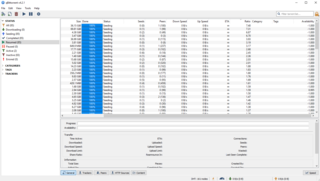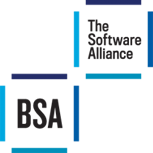Criticism
The BSA's enforcement practices against small to medium-sized businesses have been the subject of numerous articles. [5] [6] About 2006, the BSA came under fire for offering reward money up to $200,000 USD to disgruntled employees that report current or former employers for alleged violations of BSA member software licenses. [7]
According to an article in Mother Jones magazine, [8] the BSA discovered in 1995 that Antel, the Uruguayan national telephone company, had copied $100,000 worth of Microsoft, Novell, and Symantec software. The BSA's lawyers in Uruguay quickly filed suit, but dropped the suit in 1997 when Antel signed a "special agreement" with Microsoft to replace all of its software with Microsoft products. This has led to accusations that the BSA is a front for Microsoft, with its other members being enlisted purely to disguise Microsoft's dominant role. [8]
The BSA supported the highly controversial US Stop Online Piracy Act (SOPA). [9] This has led to calls from various online communities that BSA members should be boycotted as a result of their perceived attack on the Internet's underlying structure. [10] Kaspersky Lab has left the BSA over this. [11]
BSA annual software piracy study
BSA has been heavily criticized about the yearly study it publishes about copyright infringement of software. This study, produced in collaboration with the International Data Corporation, tries to estimate the level of copyright infringement of software in different countries, as well as the resulting losses for the software industry. [12] The methodology consists in estimating the number of computers shipped in a given country, as well as the average quantity of software installed on these machines. Separately, an estimation of the quantity of legitimate software sold in the country is produced, and the difference between the total amount of software estimated to be in use in the country and the estimation of software sold is used as an indicator of the rate of unauthorized copying. An estimation of the total amount lost is produced by multiplying the estimator number of unauthorized copies by the price of the original software.
These estimates have been criticized as being exaggerated and many flaws of the methodology have been pointed out; some of the figures seem to be guesses rather than solid data, and some data may not be representative. The calculation of the losses, in particular, assumes that each piece of copied software represents a direct loss of sale for software companies, a very contested assumption. [13] The study's assumptions have been described as erroneous in a way "that would get a first year student of statistics into trouble". [14]
These criticisms have been aggravated by the use of the BSA study to lobby for new, stricter copyright laws and to seek tougher penalties for people convicted of copyright infringement on software. In Britain, a judge cited the data provided by the BSA to justify a lengthy prison sentence for two people convicted of copyright infringement. [13]
Another study claiming that software patents are of the same importance to small and medium enterprises and large companies, has been described as misleading and as using a flawed methodology, but the results have nevertheless been quoted by politicians. [15]

Warez is a common computing and broader cultural term referring to pirated software that is distributed via the Internet. Warez is used most commonly as a noun, a plural form of ware, and is intended to be pronounced like the word wares. The circumvention of copy protection (cracking) is an essential step in generating warez, and based on this common mechanism, the software-focused definition has been extended to include other copyright-protected materials, including movies and games. The global array of warez groups has been referred to as "The Scene", deriving from its earlier description as "the warez scene". Distribution and trade of copyrighted works without payment of fees or royalties generally violates national and international copyright laws and agreements. The term warez covers supported as well as unsupported (abandonware) items, and legal prohibitions governing creation and distribution of warez cover both profit-driven and "enthusiast" generators and distributors of such items.
A key generator (key-gen) is a computer program that generates a product licensing key, such as a serial number, necessary to activate for use of a software application. Keygens may be legitimately distributed by software manufacturers for licensing software in commercial environments where software has been licensed in bulk for an entire site or enterprise, or they may be distributed illegitimately in circumstances of copyright infringement or software piracy.
Copy protection, also known as content protection, copy prevention and copy restriction, describes measures to enforce copyright by preventing the reproduction of software, films, music, and other media.
In computer networks, download means to receive data from a remote system, typically a server such as a web server, an FTP server, an email server, or other similar system. This contrasts with uploading, where data is sent to a remote server. A download is a file offered for downloading or that has been downloaded, or the process of receiving such a file.
Software copyright is the application of copyright in law to machine-readable software. While many of the legal principles and policy debates concerning software copyright have close parallels in other domains of copyright law, there are a number of distinctive issues that arise with software. This article primarily focuses on topics particular to software.

The Entertainment Software Association (ESA) is the trade association of the video game industry in the United States. It was formed in April 1994 as the Interactive Digital Software Association (IDSA) and renamed on July 21, 2003. It is based in Washington, D.C. Most of the top publishers in the gaming world are members of the ESA, including Capcom, Electronic Arts, Konami, Microsoft, Bandai Namco Entertainment, Nintendo, Sony Interactive Entertainment, Square Enix, Take-Two Interactive, Ubisoft, and Warner Bros. Interactive Entertainment.
The software industry includes businesses for development, maintenance and publication of software that are using different business models, mainly either "license/maintenance based" (on-premises) or "Cloud based". The industry also includes software services, such as training, documentation, consulting and data recovery. The software and computer services industry spends more than 11% of its net sales for Research & Development which is in comparison with other industries the second highest share after pharmaceuticals & biotechnology.

Windows Genuine Advantage (WGA) is an anti-infringement system created by Microsoft that enforces online validation of the licensing of several Microsoft Windows operating systems when accessing several services, such as Windows Update, and downloading Windows components from the Microsoft Download Center. WGA consists of two components: an installable component called WGA Notifications that hooks into Winlogon and validates the Windows license upon each logon and an ActiveX control that checks the validity of the Windows license when downloading certain updates from the Microsoft Download Center or Windows Update. WGA Notifications covers Windows XP and later, with the exception of Windows Server 2003 and Windows XP Professional x64 Edition. The ActiveX control checks Windows 2000 Professional licenses as well.

The Software and Information Industry Association (SIIA) is a trade association dedicated to the entertainment, consumer and business software industries. Established in 1984 as the Software Publishers Association (SPA), the SIIA took its new name when it merged with the related Information Industry Association on January 1, 1999. The joint enterprise was headed by Software Publishers Association founder Ken Wasch and operated out of the SPA's existing offices.
Florian Müller is an app developer and an intellectual property activist. He consulted for Microsoft and writes the FOSSPatents blog about patent and copyright issues. From 1985 to 1998, he was a computer magazine writer and consultant for companies, helping with collaborations between software companies. In 2004 he founded the NoSoftwarePatents campaign and in 2007 he provided some consultancy in relation to football policy.

The Gesellschaft zur Verfolgung von Urheberrechtsverletzungen e.V. is a registered association under German law. According to its own description it works for the video game industry and film industry and helps to protect intellectual property and to counter the illegal distribution of copied materials. For this purpose, the association cooperates with the Motion Picture Association of America (MPAA).
Megaupload Ltd was a Hong Kong-based online company established in 2005 that operated from 2005 to 2012 providing online services related to file storage and viewing.

Copyright infringement is the use of works protected by copyright without permission for a usage where such permission is required, thereby infringing certain exclusive rights granted to the copyright holder, such as the right to reproduce, distribute, display or perform the protected work, or to make derivative works. The copyright holder is typically the work's creator, or a publisher or other business to whom copyright has been assigned. Copyright holders routinely invoke legal and technological measures to prevent and penalize copyright infringement.

The Digital Millennium Copyright Act (DMCA) is a 1998 United States copyright law that implements two 1996 treaties of the World Intellectual Property Organization (WIPO). It criminalizes production and dissemination of technology, devices, or services intended to circumvent measures that control access to copyrighted works. It also criminalizes the act of circumventing an access control, whether or not there is actual infringement of copyright itself. In addition, the DMCA heightens the penalties for copyright infringement on the Internet. Passed on October 12, 1998, by a unanimous vote in the United States Senate and signed into law by President Bill Clinton on October 28, 1998, the DMCA amended Title 17 of the United States Code to extend the reach of copyright, while limiting the liability of the providers of online services for copyright infringement by their users.

Kaspersky Lab is a Russian multinational cybersecurity and anti-virus provider headquartered in Moscow, Russia, and operated by a holding company in the United Kingdom. It was founded in 1997 by Eugene Kaspersky, Natalya Kaspersky, and Alexey De-Monderik; Eugene Kaspersky is currently the CEO. Kaspersky Lab develops and sells antivirus, internet security, password management, endpoint security, and other cybersecurity products and services.
Music piracy is the copying and distributing of recordings of a piece of music for which the rights owners did not give consent. In the contemporary legal environment, it is a form of copyright infringement, which may be either a civil wrong or a crime depending on jurisdiction. The late 20th and early 21st centuries saw much controversy over the ethics of redistributing media content, how much production and distribution companies in the media were losing, and the very scope of what ought to be considered piracy – and cases involving the piracy of music were among the most frequently discussed in the debate.

The PROTECT IP Act was a proposed law with the stated goal of giving the US government and copyright holders additional tools to curb access to "rogue websites dedicated to the sale of infringing or counterfeit goods", especially those registered outside the U.S. The bill was introduced on May 12, 2011, by Senator Patrick Leahy (D-VT) and 11 bipartisan co-sponsors. The Congressional Budget Office estimated that implementation of the bill would cost the federal government $47 million through 2016, to cover enforcement costs and the hiring and training of 22 new special agents and 26 support staff. The Senate Judiciary Committee passed the bill, but Senator Ron Wyden (D-OR) placed a hold on it.
Copyright Alert System (CAS) was a voluntary industry effort to educate and penalize internet users who engage in the unauthorized and unlawful distribution of copyrighted works via peer-to-peer file sharing services. The program was operated by the Center for Copyright Information, a consortium consisting of the Recording Industry Association of America (RIAA), the Motion Picture Association of America (MPAA), and the internet service providers AT&T, Cablevision, Comcast, Time Warner Cable, and Verizon.

The Stop Online Piracy Act (SOPA) was a controversial proposed United States congressional bill to expand the ability of U.S. law enforcement to combat online copyright infringement and online trafficking in counterfeit goods. Introduced on October 26, 2011 by Representative Lamar Smith (R-TX), provisions included the requesting of court orders to bar advertising networks and payment facilities from conducting business with infringing websites, and web search engines from linking to the websites, and court orders requiring Internet service providers to block access to the websites. The proposed law would have expanded existing criminal laws to include unauthorized streaming of copyrighted content, imposing a maximum penalty of five years in prison.

Online piracy or software piracy is the practice of downloading and distributing copyrighted works digitally without permission, such as music or software. The principle behind piracy has predated the creation of the Internet, but its online popularity arose alongside the internet. Despite its explicit illegality in many developed countries, online piracy is still widely practiced, due to both the ease with which it can be done, the often defensible ethics behind it, and access to files that would normally cost money. Some of the most pirated software includes Adobe Software and Microsoft Office.









